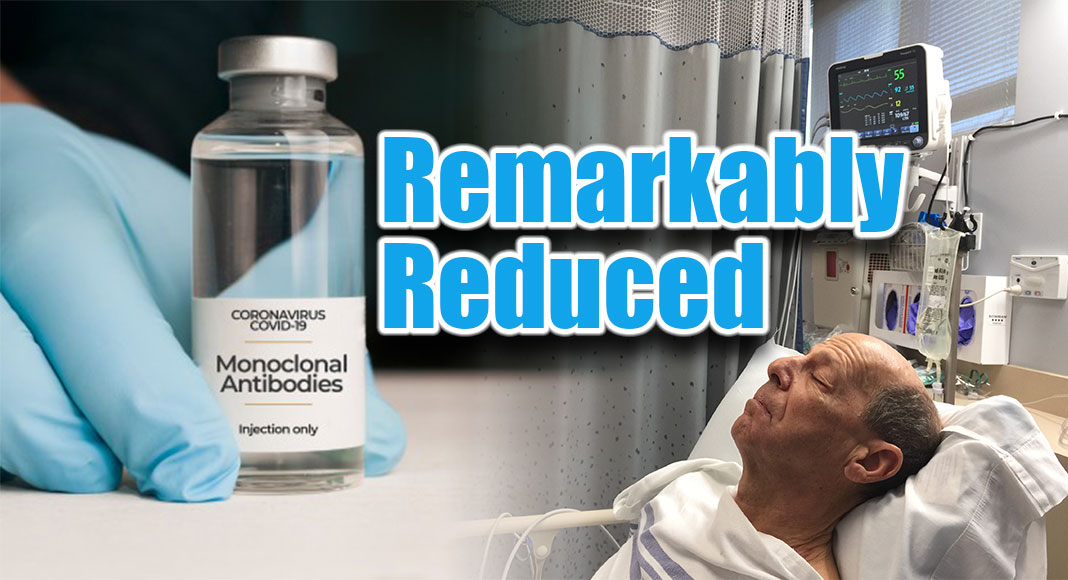
Mega Doctor News
by Keck Medicine of USC
Newswise — LOS ANGELES — Liver and kidney transplant recipients have a higher risk of severe COVID-19 and/or death should they become infected because the medication they take to ensure a successful transplant suppresses their immune systems.
Keck Hospital of USC performs some 300 liver and kidney transplants each year and provides ongoing care to thousands of post-transplant patients on an outpatient basis. During the peak of the COVID-19 surge in Los Angeles, Keck Medicine of USC physicians implemented a new protocol to monitor and manage the care of liver and kidney transplant recipients who developed COVID-19, including monoclonal antibody therapy for eligible patients.
Now, a new study shows that as a result of these efforts, the number of hospitalizations and deaths for patients managed with the new protocol dropped by 18%. For those who received the drug therapy, the number of hospitalizations were halved, and deaths reduced to zero.
“We took a very proactive approach in managing our at-risk patients that resulted in significantly improved outcomes,” said Aaron Ahearn, MD, PhD, a liver, kidney and pancreas transplant surgeon with Keck Medicine, who also is the principal investigator and corresponding author of the study.
Quick response to an urgent problem
Early in the pandemic, Keck Medicine physicians realized that COVID-19 was much more lethal for transplant recipients than the general population. By December 2020, the height of the Los Angeles outbreak, they were treating 20 or more COVID-positive liver or kidney transplant recipients per week, many of them gravely ill.
“We were overwhelmed with cases and realized we needed to do something quickly to help these patients,” said Ahearn.
Ahearn and his colleagues assembled a multidisciplinary team consisting of transplant, infectious disease, nephrology, hepatology and family medicine specialists to devise a new patient protocol that included:
- Creating a database to track COVID-19 outcomes.
- Educating staff on identifying and monitoring COVID-19 symptoms.
- Creating a triage system to determine the severity of the disease and appropriate level of care.
- Providing telehealth visits by internal and family medicine doctors.
- Giving all recent transplant recipients a home pulse oximetry monitor to track their oxygen levels.
Additionally, eligible patients who tested positive for COVID-19 were offered monoclonal antibody therapy, which the U.S. Food and Drug Administration had approved in November 2020 for emergency use to treat COVID-19. Monoclonal antibodies have been found to be effective for treating mild to moderate COVID-19 disease soon after infection.
Patients who tested positive for COVID-19 within the previous 10 days with symptoms not severe enough to be hospitalized were eligible for the drug therapy. All patients who met this criterion were offered a single outpatient infusion of one of two monoclonal antibody therapies.
How the study was conducted
For the study, the physicians conducted a retrospective review of all liver and kidney transplant recipients who tested positive for COVID-19 and were seen at Keck Hospital from Feb. 1, 2020 to Feb. 28, 2021, a total of 226 patients. They reviewed patient demographics, COVID-19 treatments, hospitalizations, and survival rates.
When comparing the outcomes of all patients before and after the protocol was implemented, the study authors found the total rate of hospitalization dropped from 54% to 35% and deaths from 20% to 9%.
They also discovered that the protocol was even more effective for patients who were identified early in their disease course and were therefore eligible for monoclonal antibody therapy.
A total of 34 (17 liver or combined liver/kidney transplant recipients and 17 kidney transplant recipients) received the drug therapy. For this group, COVID-related hospitalizations fell from 32% to 15% and death from 13% to zero.
Additionally, none of the patients had a major adverse reaction to the therapies.
Ahearn believes these results have important implications for the continued treatment of liver and kidney transplant recipients in the age of COVID-19.
“While all patients benefitted from our change in protocol, those who received the monoclonal antibodies benefitted the most,” he said. “Our study strongly suggests that these therapies can reduce disease progression in liver and kidney transplant recipients with COVID-19 and should be considered for all patients.”








